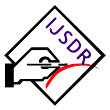Imp Links for Author
Imp Links for Reviewer
Research Area
Subscribe IJSDR
Visitor Counter
Copyright Infringement Claims
Indexing Partner
|
Published Paper Details
|
|
| Paper Title: | Patho-mechanisms in the gut microbiota implicated in the immunological neuroendocrine gut-brain pathway |
| Authors Name: | Renuka Ekka , Monika Deore , Saba Naqvi |
| Unique Id: | IJSDR2307060 |
| Published In: | Volume 8 Issue 7, July-2023 |
| Abstract: | Human gastrointestinal tract consists of Bacteria, virus, fungi, protozoa, and archaea that make up the microbiota andmaintains a mutual relationship with the host. Disruption of intestinal homeostasis may have a consequence on the gastrointestinal tract that affects the performance of some organs, one such organ is brain. The gut microbiota's importance in health and illness is becoming more widely understood. The microbiota of GI system connects the brain and the gastrointestinal system in a bidirectional mechanism with a mechanism known as Gut- brain axis. Our stomach bacteria can connect with our brain through a variety of processes that are still being researched. The vagus nerve, immune mediators, and microbial metabolites, for example, all influence central processes such as neurotransmission and behaviour. Changes in gut microbiota composition have been associated to IBD, autoimmune disease, and other neuropsychiatric diseases such as autism, schizophrenia, and depression. Disruption of the gut microbiota composition has been linked to IBD, autoimmune diseases, and a number of neuropsychiatric disorders such as autism, anxiety, and depression. We will look at how the gut-brain axis communicates via immune neuroendocrine pathways, as well as how intestinal microorganisms interact with host neuroendocrine system elements to modify stress, appetite, and other behaviors in this overview. A variety of circumstances can disrupt the GIT microbiome's homeostatic homeostasis, leading to dysbiotic microbiome configuration. Irritable bowel diseases (IBD), malnourishment, metabolic disturbances, asthmatic, and neurodegenerative diseases have all been associated with GIT microbiome taxonomic and/or functional dysbiosis. The current state of knowledge of microbial ecology homeostasis and dysbiosis in the human gut, as well as health complications linked to microbiome dysbiosis. |
| Keywords: | Gut microbiome, factors, Dysbiosis, Diseases, Neurotransmitter gut-brain signaling, Neuro-endocrine gut-brain signaling, immune gut-brain signaling |
| Cite Article: | "Patho-mechanisms in the gut microbiota implicated in the immunological neuroendocrine gut-brain pathway", International Journal of Science & Engineering Development Research (www.ijsdr.org), ISSN:2455-2631, Vol.8, Issue 7, page no.418 - 434, July-2023, Available :http://www.ijsdr.org/papers/IJSDR2307060.pdf |
| Downloads: | 000338536 |
| Publication Details: | Published Paper ID: IJSDR2307060 Registration ID:207695 Published In: Volume 8 Issue 7, July-2023 DOI (Digital Object Identifier): Page No: 418 - 434 Publisher: IJSDR | www.ijsdr.org ISSN Number: 2455-2631 |
|
Click Here to Download This Article |
|
| Article Preview | |
|
|
|
Major Indexing from www.ijsdr.org
| Google Scholar | ResearcherID Thomson Reuters | Mendeley : reference manager | Academia.edu |
| arXiv.org : cornell university library | Research Gate | CiteSeerX | DOAJ : Directory of Open Access Journals |
| DRJI | Index Copernicus International | Scribd | DocStoc |
Track Paper
Important Links
Conference Proposal
ISSN
 |
 |
DOI (A digital object identifier)
  Providing A digital object identifier by DOI How to GET DOI and Hard Copy Related |
Open Access License Policy
Social Media
Indexing Partner |
|||
| Copyright © 2024 - All Rights Reserved - IJSDR | |||






Facebook Twitter Instagram LinkedIn